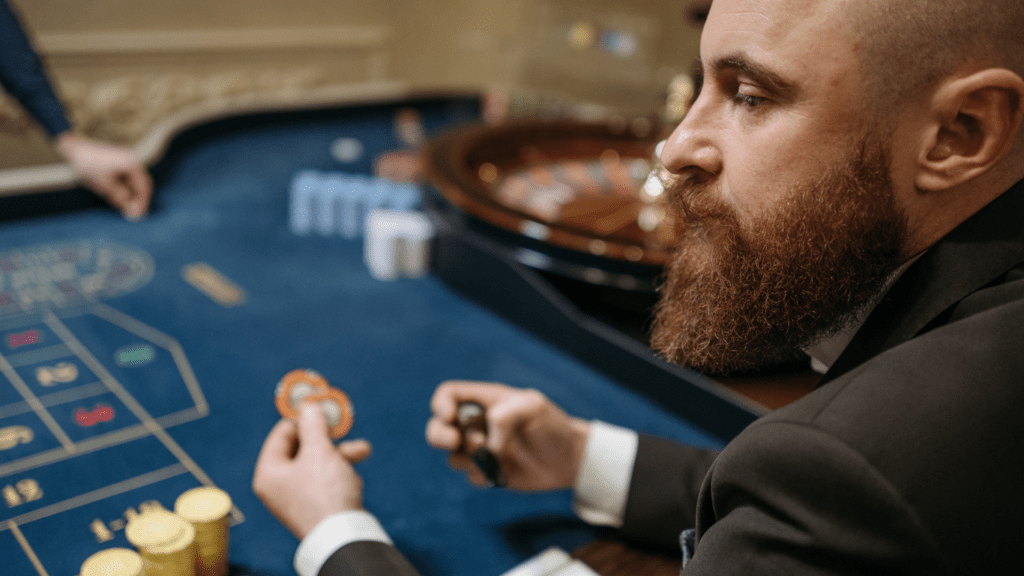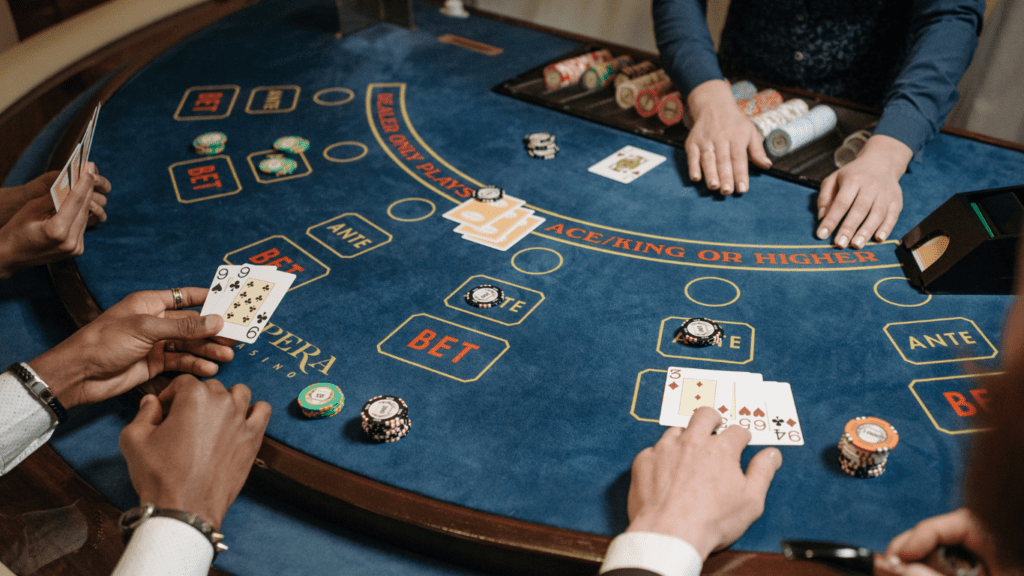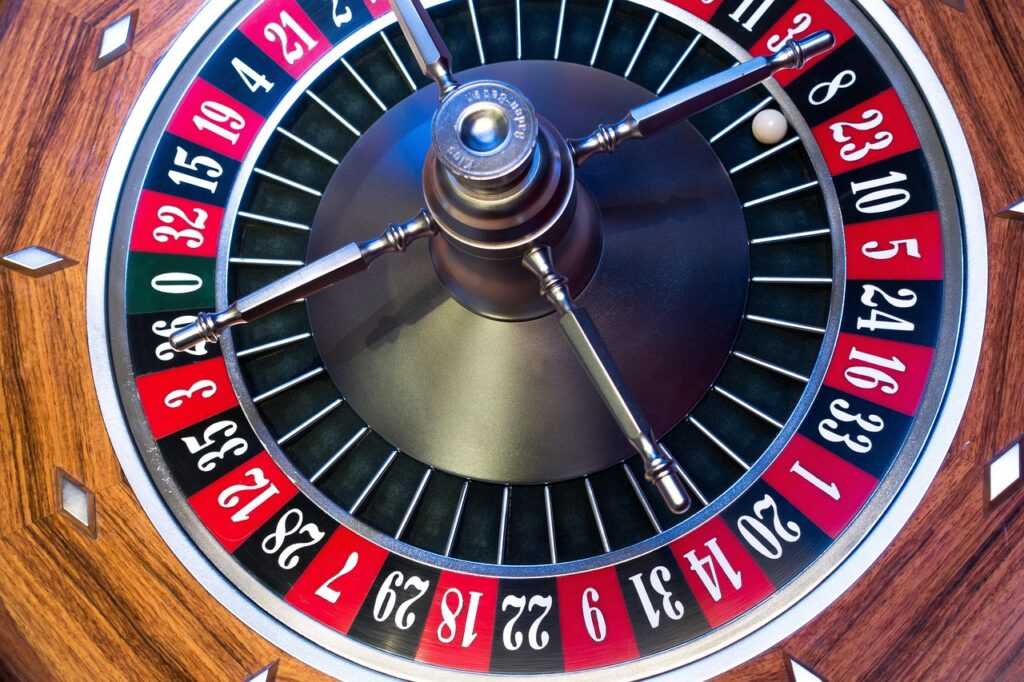What Is Compulsive Gambling?
Compulsive gambling, or gambling disorder, refers to the uncontrollable urge to keep gambling despite the negative consequences. This disorder affects 1-2% of the US population, according to the National Center for Responsible Gaming.
Key Characteristics
- Persistent Behavior: People with this disorder continue to gamble even when it leads to significant problems.
- Increased Risk-Taking: They often bet larger sums over time to achieve the desired excitement.
- Inability to Stop: Despite repeated attempts, they find it challenging to quit or cut back.
- Preoccupation with Gambling: Their thoughts are frequently occupied with gambling-related activities and strategies.
- Chasing Losses: Individuals try to recover lost money by gambling more, often leading to deeper financial troubles.
Diagnostic Criteria
The Diagnostic and Statistical Manual of Mental Disorders (DSM-5) outlines specific criteria for diagnosing compulsive gambling:
- Tolerance: Needing to gamble with more money for the same thrill.
- Withdrawal: Experiencing restlessness or irritability when attempting to reduce gambling.
- Loss of Control: Repeated, unsuccessful efforts to control, cut back, or stop gambling.
- Lying: Concealing the extent of involvement in gambling from family or others.
- Risking Relationships: Jeopardizing significant relationships, jobs, or educational/career opportunities due to gambling.
Understanding compulsive gambling involves recognizing it as a severe, often hidden, mental health disorder impacting millions’ lives.
The Psychology Behind Gambling Addiction
Gambling addiction roots itself in psychological mechanisms. I’ll break down the key drivers behind this behavior under the following subheadings.
The Thrill of the Bet
The prospect of winning triggers a dopamine spike in the brain. This neurotransmitter, associated with pleasure and reward, creates a feeling of euphoria. Individuals chasing these highs can develop a compulsive pattern. Studies show that even near-misses or frequent small wins reinforce gambling behaviors. The continuous anticipation and occasional rewards build a cycle that’s hard to break.
The Role of Escapism
Gambling serves as an escape from reality for many. Stress, anxiety, or emotional distress contribute to this behavior. When gambling, individuals may feel a temporary relief from their problems. This escape mechanism becomes a coping strategy. Gamblers often find solace in betting, diverting their minds from personal issues. This attachment to gambling grows, making it a critical factor in addiction.
By understanding these psychological factors, the complex nature of gambling addiction becomes clearer.
Biological Factors
Biological factors play a crucial role in understanding compulsive gambling. These elements contribute significantly to addiction, influencing susceptibility and behavior.
Genetic Predisposition
Genetic predisposition affects the likelihood of developing compulsive gambling. Studies indicate that gambling disorder can be heritable. According to a research study published in “Psychological Medicine,” individuals with a first-degree relative (parent, sibling) who has a gambling problem are eight times more likely to develop the disorder themselves.
Twin studies also suggest a higher concordance rate for monozygotic (identical) twins compared to dizygotic (fraternal) twins, emphasizing the genetic link.
Brain Chemistry and Reward Systems
Brain chemistry and reward systems are integral in compulsive gambling. The neurotransmitter dopamine plays a central role in the brain’s reward pathway.
When individuals gamble, dopamine release induces pleasurable sensations, reinforcing the behavior. Over time, the brain’s reward system becomes desensitized, requiring higher stakes or more frequent gambling to achieve the same dopamine rush. Functional MRI studies reveal heightened activity in the ventral striatum and prefrontal cortex during gambling activities, areas associated with reward and decision-making processes. This neurological response underpins the compulsion to gamble despite long-term negative outcomes.
Social and Environmental Influences

Understanding compulsive gambling necessitates examining social and environmental influences. These factors significantly impact gambling behavior, both positively and negatively.
Influence of Peers and Family
Peers and family members play a crucial role in shaping gambling habits. Positive reinforcement from friends can encourage frequent gambling. Teens exposed to gambling by parents are more likely to develop similar habits. Family gatherings sometimes incorporate gambling activities such as card games, indirectly normalizing the behavior.
Impact of Advertising and Accessibility
Advertising drives gambling behavior by portraying it as glamorous and exciting. Casinos, sports betting platforms, and online gambling sites often promote big wins and luxury lifestyles. Accessibility also increases gambling rates. Easy access to online gambling sites allows individuals to gamble anywhere, anytime. Legalization and availability of casinos lead to higher participation rates.
Consequences of Compulsive Gambling
Compulsive gambling leads to severe consequences that affect various aspects of life. Below are the critical areas impacted.
Financial and Legal Issues
Individuals with compulsive gambling often face dire financial straits due to continuous betting. Losses can deplete savings, and many may resort to loans, credit cards, or even illegal activities to obtain more money. These financial strains accumulate and frequently result in legal troubles such as bankruptcy or criminal charges related to theft or fraud. According to the National Council on Problem Gambling, around 23% of problem gamblers commit crimes to finance their gambling. Financial instability creates stress, leading to a destructive cycle of more gambling in an attempt to recover losses.
Emotional and Mental Health Effects
Compulsive gambling significantly impacts emotional and mental health. Feelings of guilt and shame stem from losses and deceitful behavior to conceal gambling activities. Depression and anxiety commonly arise from the stress associated with financial pressures and broken relationships. The Mayo Clinic notes that compulsive gamblers have higher rates of suicidal thoughts and attempts compared to the general population. Such mental health effects perpetuate further gambling, often as a means to escape the emotional turmoil caused by the addiction.
Compulsive gambling’s consequences reverberate through financial, legal, and mental health domains, creating a pervasive, damaging impact on individuals’ lives.
Treatment Options and Support
Compulsive gambling treatment involves therapy, counseling, and support groups. These options provide essential resources for individuals seeking recovery from gambling addiction.
Therapy and Counseling
Therapy includes cognitive-behavioral therapy (CBT) and psychodynamic therapy. CBT helps change harmful thought patterns linked to gambling, while psychodynamic therapy uncovers underlying emotional issues. Licensed therapists guide individuals through personalized treatment plans, aiming to reduce gambling urges and promote healthier behaviors.
Support Groups and Helplines
Support groups, such as Gamblers Anonymous, offer peer support and shared experiences. These groups help individuals feel understood and less isolated. Helplines provide immediate assistance and connect individuals to local resources. National Problem Gambling Helpline offers 24/7 support, ensuring help is always accessible.



 Taj Mackinolty – Author
Taj Mackinolty is a seasoned gambling enthusiast and writer at Smart Gamble Land. With a sharp focus on betting systems and winning strategies, Taj delivers clear and actionable content to readers looking to improve their gambling skills. His deep analytical approach and understanding of risk management allow him to break down complex techniques into simple guides. Taj is passionate about helping players gain control over their betting habits and develop a strategic mindset that can lead to long-term success in the casino environment.
Taj Mackinolty – Author
Taj Mackinolty is a seasoned gambling enthusiast and writer at Smart Gamble Land. With a sharp focus on betting systems and winning strategies, Taj delivers clear and actionable content to readers looking to improve their gambling skills. His deep analytical approach and understanding of risk management allow him to break down complex techniques into simple guides. Taj is passionate about helping players gain control over their betting habits and develop a strategic mindset that can lead to long-term success in the casino environment.
